The Problem with Coffee Roasting Dates

The importance of the roast date in your coffee experience is often underestimated. This article examines the labeling regulations and their significance for you, as an informed consumer. Discover how the freshness of the beans influences the aromas and taste of your coffee, as well as the crucial importance of paying attention to this date to maximize the pleasure of each cup. Don’t let chance guide your choices; engage with our in-depth analysis on this fundamental topic for all coffee enthusiasts.
The roast date: a key indicator
When I buy my coffee beans, I always ask myself: “When was it roasted?”. I look at the package, I turn it every which way and I notice that it’s generally not indicated. Yet, regardless of the packaging date, consumption date or even the brand’s founding date: the most important remains the roast date, the true starting point of coffee freshness.
So what does the law say to protect the consumer? Is this regulation actually respected by sellers?
Coffee is a dry product. When properly packaged, it can be stored for years without health risks. But the taste quality of the bean – aromas, crema, texture – deteriorates very quickly after roasting.
In reality, the labeling should indicate at a minimum the roast date. Because from the first few weeks, coffee loses its aromatic intensity, and the pleasure in the cup greatly diminishes. For a high-end coffee sold several months after roasting, disappointment is guaranteed.
What does the legislation say?
According to the regulations, there are two types of mandatory dates depending on the product category:
| Best-before date (expiry date) | Minimum durability date |
|---|---|
| Concerns highly perishable products. Consuming them after this date presents a health risk. | Listed as “best before…”. Products remain consumable after this date, but the manufacturer is no longer required to guarantee their quality. This particularly concerns canned goods, biscuits… and coffee. |
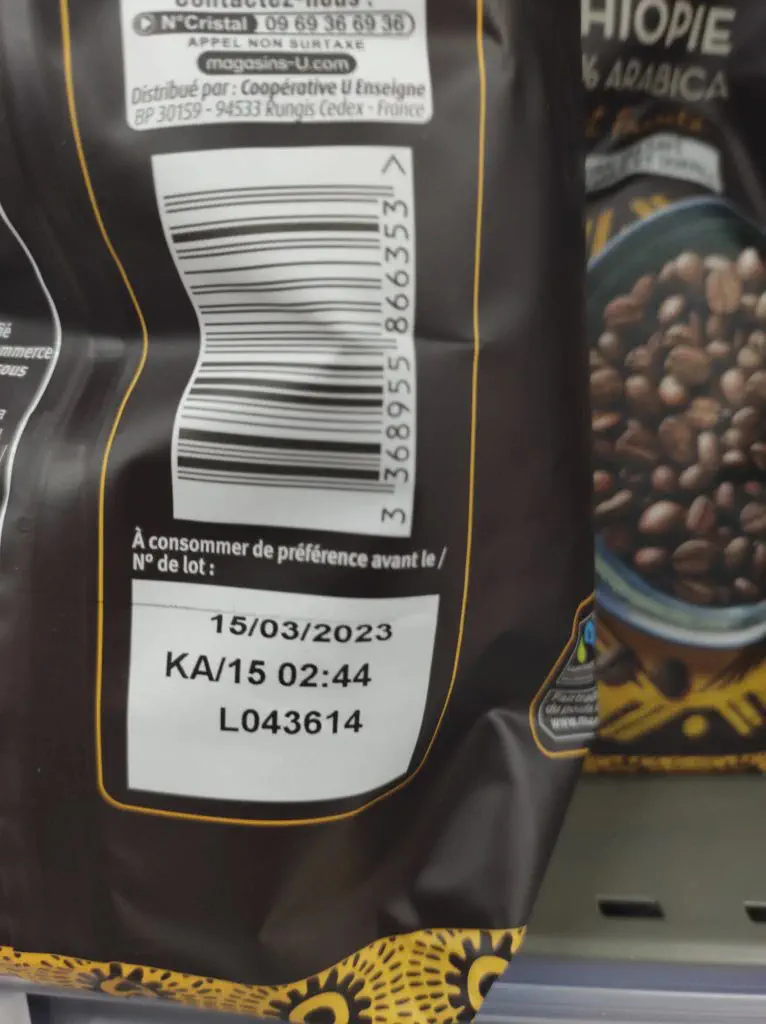
What does the consumer think?
A coffee package indicating only a minimum durability date complies with the law, even without specifying the roasting date. Other mandatory information is limited to the seller’s name and address, weight, and price. For green coffee, the country of origin and variety are added.
The roasting date is therefore not required by law, which suits manufacturers. They can sell off old stock, or even interesting blends that are stale by the time they’re tasted. No matter your grind, quantity, or temperature settings: the result will be disappointing, because the beans have lost their freshness.
So what should you do?
Two main solutions exist:
Roast it yourself: it’s possible to invest in a dedicated machine, high-performing but expensive (around €1,000 or more). This requires passion, time, and experience.
Choose a local roaster: if you’re lucky enough to have one near you, it’s the guarantee of obtaining freshly roasted coffee. Don’t hesitate to ask directly “When did you roast this batch?”.
If the seller seems evasive, change suppliers: they’re not a real roaster.
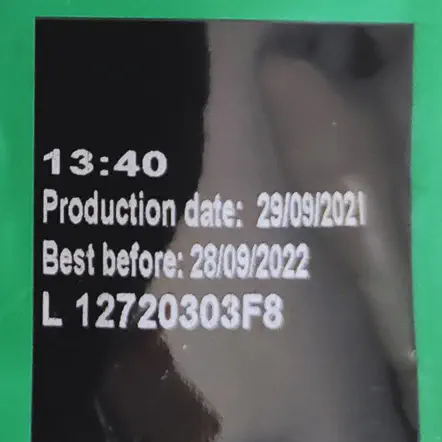
But not everyone has a local roaster. Major brands in supermarkets often settle for the mention “best before…”, which is totally insufficient for a product as fragile as coffee.
Among the rare exceptions, Starbucks indicates two dates: the “production” (which would correspond to roasting + packaging) and the “best before” (BBD). You can thus find packages placed on shelves between 2 and 6 months after roasting.
Some other brands go even further, displaying BBDs of one or two years. This is legal, but totally inconsistent with the sensory reality of coffee.
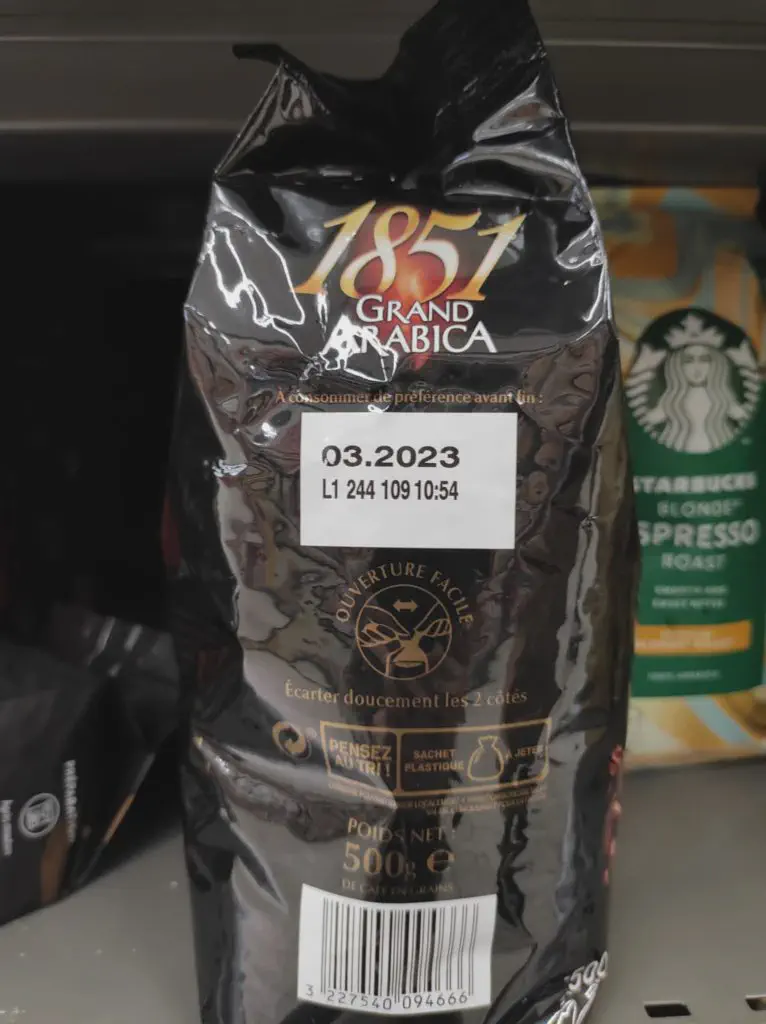
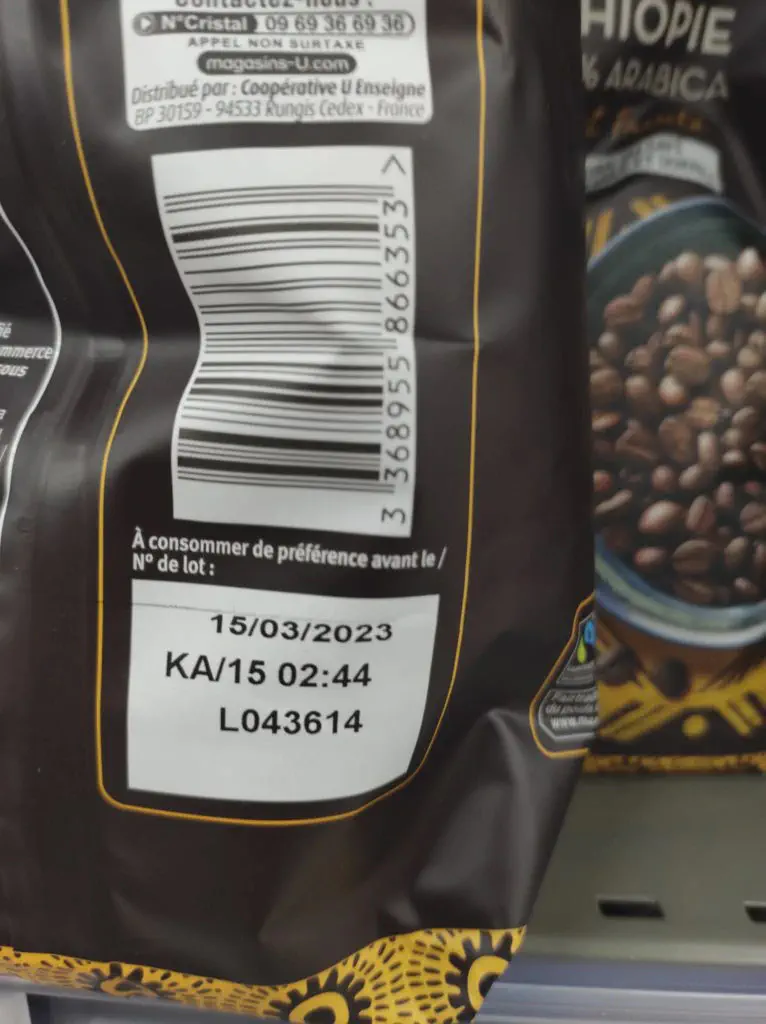
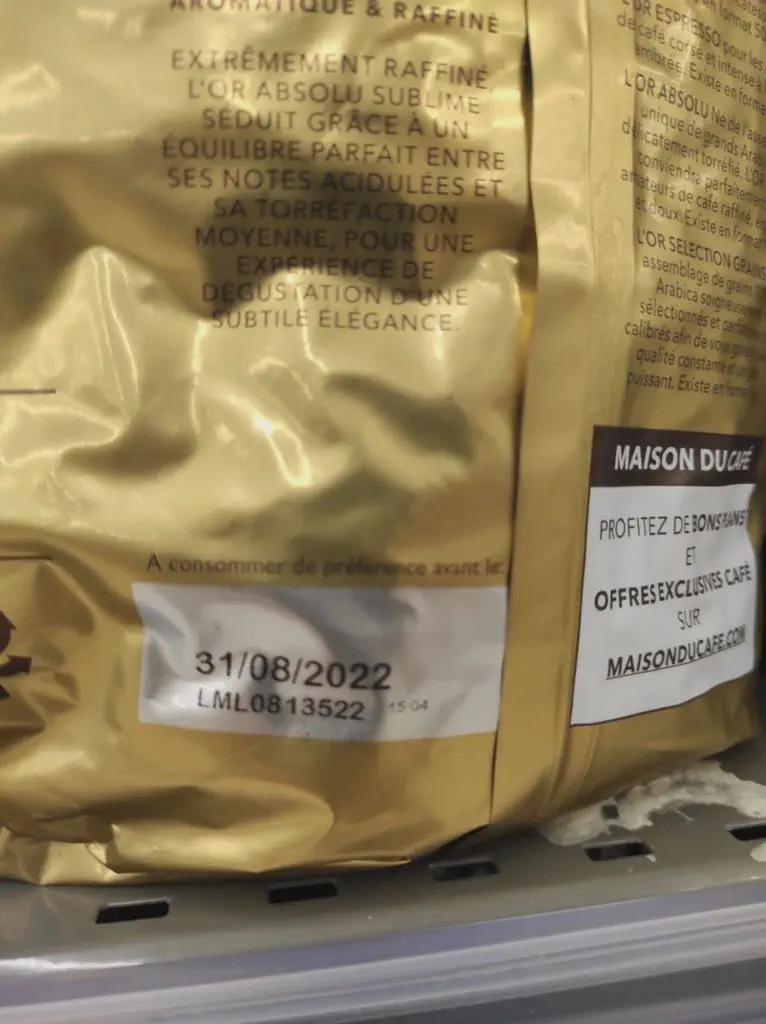
Conclusion: an insufficient law
The BBD protects consumers for certain stable products (canned goods, biscuits), but it is useless for coffee. From the moment it’s put on sale, the quality may already be deteriorated without the consumer being informed.
A simple and transparent solution would be to require the indication of the roasting date on all packages. This would protect coffee enthusiasts from the abuses of certain brands and guarantee an optimal tasting experience.
